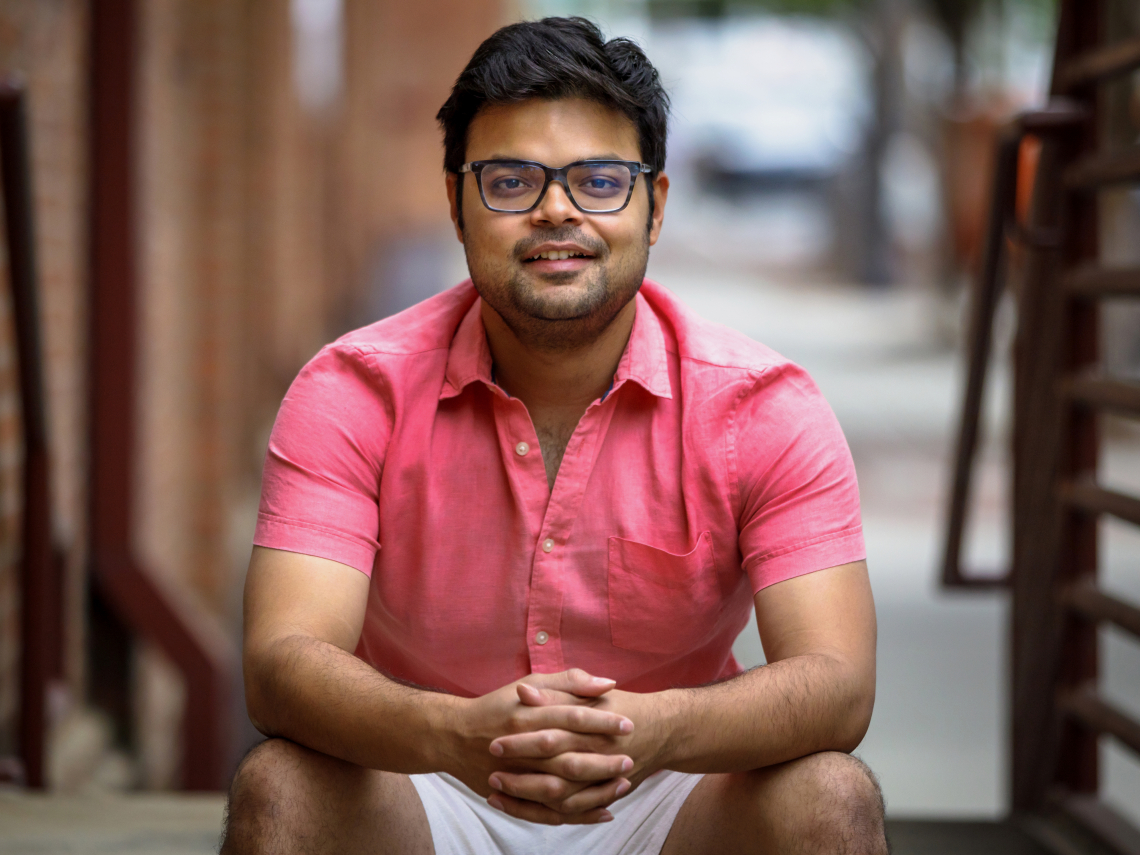Elizabeth Richardson, Trinity Communications

Have you ever thought about the economic impact of marrying your cousin? Arkadev Ghosh has. Extensively.
Duke’s new Assistant Professor of Economics likes to divide his overall research interests into two broad categories. The first investigates how family ties influence economic development outcomes. The second focuses on field experiments and understanding intergroup contact in the Indian context.
Ghosh explores the cousin marriage question in a new paper that examines how marrying within families can impede development.
To do so, Ghosh used millions of U.S. marriage records going back to 1750 and used a method from population genetics to calculate cousin marriage rates at the surname level. Since 32 states banned cousin marriages starting in 1858, Ghosh was able to make comparisons between states and determine the effect of the practice on economic outcomes, based on which states did and did not ban cousin marriages.
He discovered something interesting. After cousin marriage was banned, geographical dispersion increased due to people striking out from their large family units. There was also more occupational diversity, higher incomes and rural-to-urban migration.
“When people move away from family, they tend to move to urban locations,” said Ghosh. “They also move up the occupation ladder, so that brought about higher income over time.”
However, Ghosh says there can be downsides to banning cousin marriage, one of which is weakening the family support people receive.
“With weaker family ties, the support from your extended family goes down,” he said. “If you have a disability or you're widowed or something bad happens, you're more likely to be institutionalized, rather than having support from family.”
Ghosh points out that in developing countries, family networks are strong. Though institutional support may be weak, people have their families to take care of them when needed.
So where is the middle ground between not marrying your cousin and continuing to have good family support? Ghosh says that’s a question he’s trying to answer.
“We may follow up and look at institutional participation in these situations,” he said. “Are you more likely to vote if you have dispersed family ties? Are you more likely to enlist in the military?”
Ghosh, who grew up in India and has graduate degrees from the London School of Economics and the University of British Columbia, has also done field research on societal bonds and influence in India. After authoring a paper on how religious diversity affects productivity in the workplace, he ran youth camps for both Hindu and Muslim boys ages 13-18 so they could get to know each other know each other beyond the stereotypes associated with their religions.
Ghosh wonders if it's possible to inoculate people against political instability by bringing them together at a young age. The camp aimed to do this by integrating boys from different upbringings and having them do typical camp rituals, such as singing, together. Ghosh hopes it could be a step in helping diffuse extreme polarization between religious groups.
“I'm very passionate about understanding intergroup contact,” he said. “Given the political terrain, being able to effectively integrate people in different settings motivates me a lot.”
Though the question may seem distant from cousin marriage, Ghosh says they are actually quite connected.
“Both are trying to understand how broader societal integration can benefit the economy,” he said. “Both of them deal with links in society, and what makes society stronger and more stable.”
Ghosh has lots to look forward to in Durham, but Duke’s interdisciplinary nature stands out, given the nature of his work with identity.
“I’m excited about all the opportunities for interdisciplinary interaction because of the kind of work I do,” he said. “The department has a great development group, as well as a diverse applied micro group, and a strong labor group. I’m really looking forward to interacting with different departments and schools.”